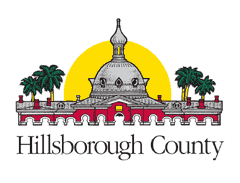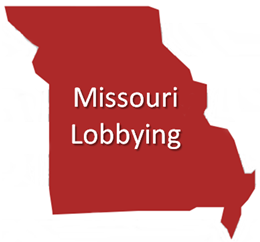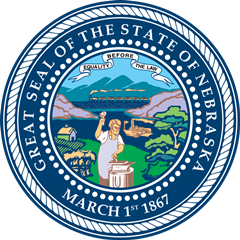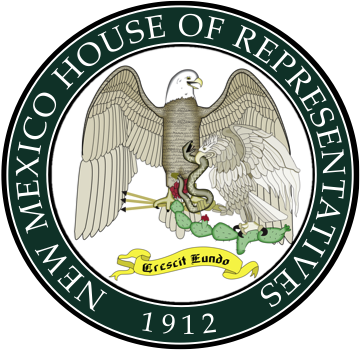January 28, 2016 •
Thursday News Roundup
Lobbying Missouri: “Lobbying Gift Ban Approved in House” by Kurt Erickson for St. Louis Post-Dispatch Campaign Finance “Trade Groups to Top Corporations: Resist political disclosure” by Dave Levinthal for Center for Public Integrity Colorado: “Critics: Colorado ‘outsourced’ campaign finance enforcement” […]
 Lobbying
Lobbying
Missouri: “Lobbying Gift Ban Approved in House” by Kurt Erickson for St. Louis Post-Dispatch
Campaign Finance
“Trade Groups to Top Corporations: Resist political disclosure” by Dave Levinthal for Center for Public Integrity
Colorado: “Critics: Colorado ‘outsourced’ campaign finance enforcement” by Dan Elliot (Associated Press) for ABC News
Michigan: “Group Sues over New Limits on Promoting Ballot Issues” by Lori Higgins for Detroit Free Press
Ethics
“Report Links Violence, Tyranny and Corruption” by Oren Dorell for USA Today
Ohio: “Convention Center Manager Fired After Ties to Vendor Are Discovered” by Lucas Sullivan for Columbus Dispatch
Oregon: “Legislature to Adopt Transparency Rules” by Gordon Friedman for Salem Statesman-Journal
Elections
“What Voters Want” by Emma Roller for New York Times
Legislative Issues
Missouri: “Missouri Lawmaker Accuses Colleague of Starting Fight Outside Bar” by Kurt Erickson for St. Louis Post-Dispatch
January 27, 2016 •
New York Joint Commission on Public Ethics Releases New Advisory Opinion
The Joint Commission on Public Ethics has released an Advisory Opinion regarding what constitutes lobbying activity when it comes to political consultants and grassroots communications. Advisory Opinion 16-01 requires public relations consultants to register their efforts to influence government through […]
 The Joint Commission on Public Ethics has released an Advisory Opinion regarding what constitutes lobbying activity when it comes to political consultants and grassroots communications. Advisory Opinion 16-01 requires public relations consultants to register their efforts to influence government through public campaigns, which includes any contact with editorial boards aimed at publishing communications involving a political issue.
The Joint Commission on Public Ethics has released an Advisory Opinion regarding what constitutes lobbying activity when it comes to political consultants and grassroots communications. Advisory Opinion 16-01 requires public relations consultants to register their efforts to influence government through public campaigns, which includes any contact with editorial boards aimed at publishing communications involving a political issue.
The Advisory Opinion is meant to encompass grassroots communications, an action the public relations community is calling an unconstitutional restraint on free speech. With the Opinion taking effect, grassroots communication is considered lobbying if it references, suggests, or otherwise implicates activity covered by the Lobbying act; takes a clear position on the issue in question; or is an attempt to influence a public official through a call to action. If a consultant had control over the delivery of the message and had input into its content, registration and reporting will now be required.
January 27, 2016 •
Wednesday Government Relations News
Lobbying Alaska: “Panel Says Lunch and Learn Events Could Raise Ethical” by Rashah McChesney (Associated Press) for Connecticut Post Florida: “Florida Legislators’ Visit to Alabama Casino Is Legal, but Perception Problem Persists” by Tia Mitchell for Florida Times Union New […]
 Lobbying
Lobbying
Alaska: “Panel Says Lunch and Learn Events Could Raise Ethical” by Rashah McChesney (Associated Press) for Connecticut Post
Florida: “Florida Legislators’ Visit to Alabama Casino Is Legal, but Perception Problem Persists” by Tia Mitchell for Florida Times Union
New York: “NY Attorney General Links Lobbying Data on Public Website” by The Associated Press for Albany Times Union
New York: “JCOPE: Consultant contact with editorial boards must be disclosed” by Chris Bragg for Albany Times Union
Campaign Finance
Ohio: “Cleveland City Council President Proposes Increased Caps for Campaign Contributions” by Leila Atassi for Cleveland Plain Dealer
Ethics
Illinois: “Jury Convicts Ex-Chicago Official in Red-Light Camera Case” by The Associated Press for ABC News
Missouri: “Lobbyist Gift Ban Advances in Capitol” by Kurt Erickson for St. Louis Post-Dispatch
New York: “2 Offices Won’t Investigate New York Constitutional Amendment on Adirondack Mining” by Susanne Craig for New York Times
Elections
“Ben & Jerry’s Founder Unveils New ‘Bernie’s Yearning’ Ice Cream Flavor” by Nick Gass and Kenneth Vogel for Politico
Legislative Issues
Washington: “Sen. Pam Roach Booted Off Sex-Trafficking Panel for ‘Victim-Blaming,’ Other Insults” by Jim Brunner for Seattle Times
January 26, 2016 •
Tuesday Lobbying and Campaign Finance News Update
Lobbying Florida: “Ethics Commission Opines on Romance” by Jeff Burlew for Tallahassee Democrat Campaign Finance California: “3 Former Fundraisers for Mayor Ed Lee Charged With Bribery, Money Laundering” by John Shutt and Rebecca Bowe for KQED California: “Federal Investigators Focus […]
 Lobbying
Lobbying
Florida: “Ethics Commission Opines on Romance” by Jeff Burlew for Tallahassee Democrat
Campaign Finance
California: “3 Former Fundraisers for Mayor Ed Lee Charged With Bribery, Money Laundering” by John Shutt and Rebecca Bowe for KQED
California: “Federal Investigators Focus on Small Campaign Donations to L.A. Councilwoman Nury Martinez” by David Zahniser for Los Angeles Times
New Jersey: “Firm Withdraws Contract with Jersey City amid Pay-to-Play Allegations” by Terence McDonald (Jersey Journal) for Newark Star-Ledger
New York: “Schneiderman: JCOPE rule would unfairly target AG, comptroller” by Colby Hamilton for Capital New York
Vermont: “Investigator Clears Sorrell of Campaign Finance Allegations” by Mark Johnson for VTDigger.org
Ethics
Maryland: “In Md., Officials Are Notified When Someone Checks Their Financial Filings” by Fenit Nirappil for Washington Post
Virginia: “Luxury Box Gifts Still Kosher for Virginia Public Officials” by Alan Suderman (Associated Press) for Connecticut Post
Elections
“Hillary Clinton and Bernie Sanders Battle for Party’s Future” by Patrick Healy for New York Times
North Carolina: “Trial to Start in Lawsuit over North Carolina’s Voter-ID Law” by Sari Horwitz for Washington Post
January 25, 2016 •
New Public Transparency Website Launched in New York
State Attorney General Eric Schneiderman has announced the release of a new website which will contain information regarding lobbyist disclosures, and will match them up with specific pieces of proposed and passed legislation. The website, designed to promote the public’s […]
 State Attorney General Eric Schneiderman has announced the release of a new website which will contain information regarding lobbyist disclosures, and will match them up with specific pieces of proposed and passed legislation. The website, designed to promote the public’s right to know about decision making within the state government, will also link with the Joint Commission on Public Ethics lobbyist filings.
State Attorney General Eric Schneiderman has announced the release of a new website which will contain information regarding lobbyist disclosures, and will match them up with specific pieces of proposed and passed legislation. The website, designed to promote the public’s right to know about decision making within the state government, will also link with the Joint Commission on Public Ethics lobbyist filings.
Data included on the website will relate to campaign financing, lobbying, charities, state contracts, legislator grants, corporate registrations, and elected officials. The website is available at http://www.NYOpenGovernment.com.
January 25, 2016 •
Monday News Roundup
Lobbying “Lobby Firms Reap Benefits of an Active Congress” by Catherine Ho for Washington Post Campaign Finance “Court Rejects Push for Stricter Disclosure on Super PAC Ads” by Josh Gerstein for Politico “Corruption’s Not the Problem, It’s Inequality” by Richard […]
 Lobbying
Lobbying
“Lobby Firms Reap Benefits of an Active Congress” by Catherine Ho for Washington Post
Campaign Finance
“Court Rejects Push for Stricter Disclosure on Super PAC Ads” by Josh Gerstein for Politico
“Corruption’s Not the Problem, It’s Inequality” by Richard Hasen for BillMoyers.com
Massachusetts: “Sen. Joyce to Pay Nearly $5,000 to Resolve Campaign Finance Issues” by Andrea Estes for Boston Globe
Ethics
Pennsylvania: “Allentown Council Unanimous in No Confidence Vote on Mayor Ed Pawlowski” by Emily Opilo for Allentown Morning Call
Elections
“Donald Trump or Ted Cruz? Republicans Argue Over Who Is Greater Threat” by Jonathan Martin for New York Times
Legislative Issues
Kansas: “Senate Chairman’s Rules Block Female Witnesses in Revealing Attire” by Tim Carpenter for Topeka Capital-Journal
Mississippi: “Republicans Gain Edge with Vote to Unseat Mississippi Democrat” by Richard Fausset and Alan Blinder for New York Times
January 22, 2016 •
News You Can Use Digest – January 22, 2016
Federal: Case Could Widen Free-Speech Gap between Unions and Corporations New York Times – Adam Liptak | Published: 1/18/2016 Oral arguments in a major challenge to public unions illuminated a gap in the U.S. Supreme Court’s treatment of capital and labor. […]

Federal:
Case Could Widen Free-Speech Gap between Unions and Corporations
New York Times – Adam Liptak | Published: 1/18/2016
Oral arguments in a major challenge to public unions illuminated a gap in the U.S. Supreme Court’s treatment of capital and labor. The court has long allowed workers to refuse to finance unions’ political activities, but shareholders have no comparable right to refuse to pay for corporate political speech. At the arguments in the case, Friedrichs v. California Teachers Association, the justices seemed poised to widen that gap by allowing government workers to refuse to support unions’ collective bargaining activities, as well. The case should prompt a new look at whether the differing treatment of unions and corporations is justified, said Benjamin Sachs, a law professor at Harvard.
High Court Rejects Challenge over Contractor Contributions
Philadelphia Inquirer; Associated Press – | Published: 1/19/2016
The U.S. Supreme Court will not hear a challenge to a law that bans government contractors from donating money to federal candidates or political parties. The justices let stand a lower court ruling that said the ban is a reasonable way of addressing the government’s interest in preventing political corruption.
President Obama May Require Federal Contractors to List Campaign Gifts
New York Times – Julie Hirschfeld Davis | Published: 1/19/2016
President Obama is weighing whether to invoke his executive authority to force federal contractors to disclose political contributions they make to independent groups. The proposed executive order would require corporations that currently have federal contracts to disclose what they spend on political efforts, including money forwarded through trade associations. Obama has been considering the action for more than a year, but discussions have intensified in recent weeks as he moves to deliver on unfulfilled promises in his final year in office. Business groups that have opposed campaign finance restrictions argue the executive order would encroach on free speech rights.
From the States and Municipalities:
California – FPPC Cracks Down on Reporting for California Lobbyists
Sacramento Bee – Taryn Luna | Published: 1/21/2016
The California Fair Political Practices Commission voted to require interest groups and lobbyists to break out and itemize expenses in the “other payments to influence category” in quarterly filings to the state. The current rules allow groups to report the category, which includes payments as routine as money for office supplies to more influential spending on advertising campaigns, as a lump sum. “Lobbying is largely a self-regulated industry and in order to make sure people are playing by the rules, we need this type of information that shines a light on what’s going on,” said commission Chairperson Jodi Remke.
Florida – Hillsborough Commissioners OK Measure to Require Lobbyists’ Fees
Tampa Tribune – Mike Salinero | Published: 1/21/2016
Hillsborough County commissioners passed an ordinance that requires lobbyists to register and pay a $50 yearly fee. Under the new law, everyone who comes to meet with commissioners must fill out a form saying who they represent, what they want to discuss, and which commissioners they are visiting. The commission also increased penalties for non-compliance that were in a draft ordinance. For a first violation, the lobbyist is given a warning, followed by a $250 fine for a second violation.
Florida – Special Interests Flood Florida Legislative Campaigns with $28 Million in 6 Months
Miami Herald – Mary Ellen Klas | Published: 1/17/2016
At least $28.5 million has been funneled into legislative political committees in Florida during the past six months. The influx of cash is the result of a shift in state campaign finance laws that allowed for unfettered donations to such committees in the wake of the Citizens United ruling. Stronger disclosure laws opened the door to more frequent reporting, but there is no requirement for donors to disclose what issues or bills they are attempting to impact. Many of the wealthy special interests are getting preferential treatment as their priority bills have been moving early in the session. Many ideas that are opposed by influential special interests are getting blocked. Industry fights are emerging over medical marijuana, gambling, solar power, hospital regulation, and dental care, among others.
Michigan – As Water Problems Grew, Officials Belittled Complaints from Flint
New York Times – Julie Bosman, Monica Davey, and Mitch Smith | Published: 1/20/2016
Michigan Gov. Rick Snyder released more than 270 pages of emails surrounding the toxic water crisis in Flint. One email reveals Snyder’s chief of staff believed Flint’s poisoned water was not the state’s responsibility. That aide also mentioned state health officials who worried the issue could turn into a “political football.” It was not until late in 2015 – after months of complaints – that state officials finally conceded what critics had been contending: Flint was in the midst of a major public health emergency as tap water pouring into families’ homes contained enough lead to show up in the blood of dozens of people in the city. Even small amounts of lead could cause lasting health and developmental problems in children.
Nebraska – Ernie Chambers Resolution Takes Aim at Free Meals Provided by Lobbyists
Omaha World-Herald – Joe Duggan | Published: 1/19/2016
State law caps the gifts that senators or their immediate family members may accept from lobbyists at $50 per month. But the law places no limits on free meals or beverages, said Frank Daley, executive director of the Nebraska Accountability and Disclosure Commission. Many lobbyists, groups, and associations host breakfasts, lunches, and dinners throughout the session. Defenders say the meals are convenient, sociable ways for lawmakers to get to know the issues and each other. But a resolution drafted by Sen. Ernie Chambers would seek to end lobbyist-provided meals inside the Capitol while the Legislature is in session.
New Mexico – New Mexico Lobbyist Spending Tops $818,000 in 2015
New Mexico In Depth – Sandra Fish | Published: 1/18/2016
Lobbyists and their employers spent about $818,000 on meals, receptions, and gifts for New Mexico lawmakers and other officials in 2015. Individual lobbyists – 148 of them – spent more $474,000, while 23 businesses spent more than $344,000, reports show. While the secretary of state’s office recently issued guidelines suggesting lobbyists report their expenses in greater detail, not all lobbyists did. Some 19 lobbyists listed aggregate expenses of more than $1,000 after April 2015, failing to specify lawmakers they hosted or dates they spent the money.
New Mexico – Scandals Raise Profile of an Unpopular Idea among Lawmakers: An ethics commission
New Mexico In Depth – Marjorie Childress | Published: 1/18/2016
A proposal to create an independent ethics commission in New Mexico focused on the executive and legislative branches first gained prominence in 2006, almost a year after then-state Treasurer Robert Vigil resigned to avoid facing possible impeachment. A task force recommended its creation. Subsequent ethics committee legislation passed the House four times, but has withered in the state Senate. Several questions need to be resolved before an independent ethics commission gets traction at the Legislature, including the need for sufficient funding; the question of jurisdictional oversight; the makeup and size, along with who appoints the positions; and satisfactory due process provisions to guard against “politically motivated witch hunts,” said Sen. Peter Wirth.
New York – In Albany, Those Who Might Address Ethics Meet Rarely and Offer Less
New York Times – Vivian Yee | Published: 1/19/2016
Like other committees in the New York Legislature, the ethics panels have chairpersons and several members each. Unlike the others, they have not considered a single bill on the subject of ethics – or anything else – that anyone can remember. For reformers, the committees’ paralysis is yet another symptom of a willful ignorance that allows the Capitol to make much of minor improvements while circumventing real change. “It is a body bent on self-protection,” said Common Cause New York Executive Director Susan Lerner, referring to the Legislature.
Ohio – State Street Settles Pay-to-Play Charges for $12 Million
New York Times – Liz Moyer | Published: 1/14/2016
State Street Corp. agreed to pay $12 million to settle charges that a senior vice president and a company lobbyist offered an Ohio deputy treasurer payoffs in order to win contracts servicing state pension funds. The Securities and Exchange Commission (SEC) found former State Street Vice President Vincent DeBaggis entered into an agreement with Amer Ahmad, then Ohio deputy treasurer, to make illegal cash payments and political contributions. In exchange, Ahmad helped the Boston-based bank obtain three lucrative contracts. Ahmad pleaded guilty before fleeing to Pakistan. He was eventually returned to the U.S. to serve a 15-year sentence. The SEC alleged Robert Crowe, a lawyer hired as a fundraiser and lobbyist by State Street, also took part in the kickback scheme.
South Carolina – Bill Would Require South Carolina Journalists to Register
Denver Post – Meg Kinnard (Associated Press) | Published: 1/19/2016
South Carolina Rep. Mike Pitts said it is time to register journalists in the state. His bill would create requirements for people wanting to work as a journalist for a media outlet, and also before that outlet could hire anyone for a reporting position. The secretary of state’s office would be tasked with keeping a “responsible journalism registry” and creating the criteria, with the help of a panel, on what qualifies a person as a journalist–similar to doctors and lawyers, Pitts said. He said the bill is not a reaction to any particular news story but was intended to stimulate discussion over how he sees gun issues being reported.
Virginia – Lawmakers Go on Fundraising Frenzy before Session
Deseret News – Alan Suderman (Associated Press) | Published: 1/19/2016
Like they do every year, Virginia legislators kept busy raising money from the businesses and trade associations that try to influence the laws they pass, donations that will not be made public until long after the 2016 session is over. State law forbids lawmakers from fundraising during the session, a restriction that leads to a flurry of receptions and fundraisers in the run up to it. This year there were nearly 50 fundraisers scheduled for the first two weeks in January, including 20 on the two days before the session started. Only large donations to certain campaign committees have to be reported shortly after they are given. Most campaign finance reports will not be due until this summer, meaning large sums of cash raised in the lead up to session will not be made public for months.
Washington – State Lawmaker in Olympia Asks Visiting Teens If They’re Virgins
Seattle Times – James O’Sullivan | Published: 1/18/2016
Washington Rep. Mary Dye startled a group of teen visitors by asking which ones were virgins and even suggesting one was not. The high school students had met with Dye to advocate for expanded insurance coverage for birth control as part of Planned Parenthood’s Teen Lobbying Day when she asked the intrusive question. “After she made the statement about virginity, all of my teens looked at me,” Rachel Todd, a Planned Parenthood worker accompanying the kids. “And I said, ‘You don’t have to answer that.'” Dye later said she was trying to talk about empowerment and good choices.
 State and Federal Communications produces a weekly summary of national news, offering more than 60 articles per week focused on ethics, lobbying, and campaign finance.
State and Federal Communications produces a weekly summary of national news, offering more than 60 articles per week focused on ethics, lobbying, and campaign finance.
January 21, 2016 •
Hillsborough Co., Florida Commissioners Approve More Comprehensive Lobbyist Registration Requirements
County commissioners, by a unanimous vote, approved an ordinance requiring lobbyists to register and pay a yearly $50 fee. Under the previous law, lobbyists simply had to sign a registry each time they appeared to lobby. The new law requires […]
 County commissioners, by a unanimous vote, approved an ordinance requiring lobbyists to register and pay a yearly $50 fee. Under the previous law, lobbyists simply had to sign a registry each time they appeared to lobby.
County commissioners, by a unanimous vote, approved an ordinance requiring lobbyists to register and pay a yearly $50 fee. Under the previous law, lobbyists simply had to sign a registry each time they appeared to lobby.
The new law requires the lobbyist to declare who they represent, what topics they will be discussing, and with whom they are meeting. The ordinance also increases the fines for violations and increases the time lobbying privileges are suspended for repeat offenders. The definition of lobbying is also expanded to include indirect communication through emails or text messages.
The county will hold training for lobbyists in August covering the changes.
January 21, 2016 •
Thursday News Roundup
Lobbying “Big Names Free to Lobby in 2016” by Megan Wilson for The Hill Nebraska: “Ernie Chambers Resolution Takes Aim at Free Meals Provided by Lobbyists” by Joe Duggan for Omaha World-Herald New Mexico: “New Mexico Lobbyist Spending Tops $818,000 […]
 Lobbying
Lobbying
“Big Names Free to Lobby in 2016” by Megan Wilson for The Hill
Nebraska: “Ernie Chambers Resolution Takes Aim at Free Meals Provided by Lobbyists” by Joe Duggan for Omaha World-Herald
New Mexico: “New Mexico Lobbyist Spending Tops $818,000 in 2015” by Sandra Fish for New Mexico In Depth
New York: “Friend Gave to de Blasio Just as Client Won Permit to Stage Festival” by Michael Grynbaum for New York Times
Campaign Finance
“President Obama May Require Federal Contractors to List Campaign Gifts” by Julie Hirschfeld Davis for New York Times
“High Court Rejects Challenge over Contractor Contributions” by The Associated Press for Philadelphia Inquirer
Ethics
South Carolina: “Bill Would Require South Carolina Journalists to Register” by Meg Kinnard (Associated Press) for Denver Post
Elections
“’90s Scandals Threaten to Erode Hillary Clinton’s Strength with Women” by Amy Chozick for New York Times
“Sarah Palin Endorses Donald Trump, Which Could Bolster Him in Iowa” by Alan Rappeport and Maggie Haberman for New York Times
Legislative Issues
West Virginia: “Court Offers Little Clarity in Arguments on Hall’s Senate Seat” by David Gutman for Charleston Gazette
January 20, 2016 •
Missouri Ethics Bill Moves through House Committee
Missouri House Bill 2166, just one of many ethics bills moving through the legislature, passed the Government Oversight and Accountability Committee on Tuesday and will be sent to the full House for further debate. The bill bans most lobbyist gifts […]
 Missouri House Bill 2166, just one of many ethics bills moving through the legislature, passed the Government Oversight and Accountability Committee on Tuesday and will be sent to the full House for further debate. The bill bans most lobbyist gifts to state public officials and requires itemization of expenditures on lobbying reports for certain events unless all members of the legislature or all statewide elected officials are invited.
Missouri House Bill 2166, just one of many ethics bills moving through the legislature, passed the Government Oversight and Accountability Committee on Tuesday and will be sent to the full House for further debate. The bill bans most lobbyist gifts to state public officials and requires itemization of expenditures on lobbying reports for certain events unless all members of the legislature or all statewide elected officials are invited.
State Rep. Justin Alferman, the bill’s sponsor, says the proposal is designed to “alleviate some of the undue influence of lobbyists in Jefferson City.”
January 20, 2016 •
Nebraska Senator Seeks to End Lobbyist-Paid Lunches During Session
State Sen. Ernie Chambers introduced a resolution to prevent lobbyist-provided meals from influencing legislators. The resolution, Legislative Resolution 414, prohibits lobbyists from providing meals to legislators inside the Capitol while the legislature is in session. Last year, catering bills, paid […]
 State Sen. Ernie Chambers introduced a resolution to prevent lobbyist-provided meals from influencing legislators. The resolution, Legislative Resolution 414, prohibits lobbyists from providing meals to legislators inside the Capitol while the legislature is in session. Last year, catering bills, paid for by lobbyists, exceeded $10,000.
State Sen. Ernie Chambers introduced a resolution to prevent lobbyist-provided meals from influencing legislators. The resolution, Legislative Resolution 414, prohibits lobbyists from providing meals to legislators inside the Capitol while the legislature is in session. Last year, catering bills, paid for by lobbyists, exceeded $10,000.
Nebraska law currently limits gifts from lobbyists at $50 per month to senators and their immediate families, but meals and beverages do not count toward the limit when the lobbyist is present at the event.
Defending the tradition of a serving line during the final weeks of the session, Speaker Galen Hadley dismisses the idea of food influencing how a senator votes. Sen. Chambers believes the practice creates the appearance of impropriety and should be ended.
January 20, 2016 •
Wednesday Government Relations News
Lobbying Florida: “Lobbyists Often Skirt the Rules but Are Rarely Punished in Hillsborough County” by Steve Contorno for Tampa Bay Times Missouri: “Lobbyist Gift Ban Heads to Full House for Vote” by Kurt Erickson for St. Louis Post-Dispatch Campaign Finance […]
 Lobbying
Lobbying
Florida: “Lobbyists Often Skirt the Rules but Are Rarely Punished in Hillsborough County” by Steve Contorno for Tampa Bay Times
Missouri: “Lobbyist Gift Ban Heads to Full House for Vote” by Kurt Erickson for St. Louis Post-Dispatch
Campaign Finance
“Case Could Widen Free-Speech Gap between Unions and Corporations” by Adam Liptak for New York Times
“Rep. Jolly Pitches Curb on Federal Lawmakers’ Fundraising” by Mike Salinero for Tampa Tribune
“The GOP Debates Have Become Like Super Bowl Parties for Top Donors” by Matea Gold for Washington Post
Pennsylvania: “Loopholes Exposed in Allentown’s New Anti-Pay-to-Play Law” by Emily Opilo for Allentown Morning Call
Virginia: “Lawmakers Go on Fundraising Frenzy before Session” by Alan Suderman (Associated Press) for Deseret News
Ethics
New Mexico: “Scandals Raise Profile of an Unpopular Idea among Lawmakers: An ethics commission” by Marjorie Childress for New Mexico In Depth
New York: “In Albany, Those Who Might Address Ethics Meet Rarely and Offer Less” by Vivian Yee for New York Times
Vermont: “Lawmakers Divided on Proposed Ethics Commission” by Bob Kinzel (Vermont Public Radio) for Rutland Herald
January 19, 2016 •
New Lobby Legislation Filed in New Mexico
State Representative Jeff Steinborn has introduced three pieces of legislation aimed at lobbyist disclosure and transparency. Steinborn’s bills would require employers of lobbyists to file biannual reports disclosing all funding spent to lobby the state government; would require lobbyists to […]
 State Representative Jeff Steinborn has introduced three pieces of legislation aimed at lobbyist disclosure and transparency. Steinborn’s bills would require employers of lobbyists to file biannual reports disclosing all funding spent to lobby the state government; would require lobbyists to disclose specific pieces of legislation and administrative issues they are hired to work on; and would require lobbyists to specifically list each legislator who receives a gift, meal, or other expenditure from them.
State Representative Jeff Steinborn has introduced three pieces of legislation aimed at lobbyist disclosure and transparency. Steinborn’s bills would require employers of lobbyists to file biannual reports disclosing all funding spent to lobby the state government; would require lobbyists to disclose specific pieces of legislation and administrative issues they are hired to work on; and would require lobbyists to specifically list each legislator who receives a gift, meal, or other expenditure from them.
Steinborn has been successful with lobbyist legislation in the past, having passed a bill requiring the Secretary of State to publish lobbyist spending online in a searchable and downloadable format.
January 19, 2016 •
Tuesday Lobbying and Campaign Finance News Update
Lobbying “East Side of California Capitol Will Become Staff, Lobbyist Entrance” by Alexei Koseff for Sacramento Bee Campaign Finance “Super PACs Get Free Pass to Hide Donors” by Dave Levinthal for Center for Public Integrity Florida: “Special Interests Flood Florida […]
 Lobbying
Lobbying
“East Side of California Capitol Will Become Staff, Lobbyist Entrance” by Alexei Koseff for Sacramento Bee
Campaign Finance
“Super PACs Get Free Pass to Hide Donors” by Dave Levinthal for Center for Public Integrity
Florida: “Special Interests Flood Florida Legislative Campaigns with $28 Million in 6 Months” by Mary Ellen Klas for Miami Herald
New Jersey: “Critics Allege Pay-to-Play Violation after Fulop Donor’s Firm Gets Contract” by Terrence McDonald (Jersey Journal) for Newark Star-Ledger
New York: “State Street Settles Pay-to-Play Charges for $12 Million” by Liz Moyer for New York Times
Pennsylvania: “Lawyer: Former Allentown official lied to FBI out of panic and loyalty, but soon returned to confess” by Peter Hall and Emily Opilo for Allentown Morning Call
Ethics
Arizona: “State Drops Criminal Probe of Ex-Utility Regulator” by Howard Fischer (Capitol News Services) for Arizona Daily Star
California: “Informant in FBI Bribery Case was Huntington Park Councilman” by Ruben Vives and Joel Rubin for Los Angeles Times
Massachusetts: “Governor Baker Calls for an Ethics Investigation of Milton Sen. Brian Joyce” by Michael Norton and Matt Murphy (State House News Service) for Quincy Patriot-Ledger
South Carolina: “Appeals Court Upholds Jury Award in The Sun News Defamation Case” by Chrarles Perry for Myrtle Beach Sun News
State and Federal Communications, Inc. provides research and consulting services for government relations professionals on lobbying laws, procurement lobbying laws, political contribution laws in the United States and Canada. Learn more by visiting stateandfed.com.

